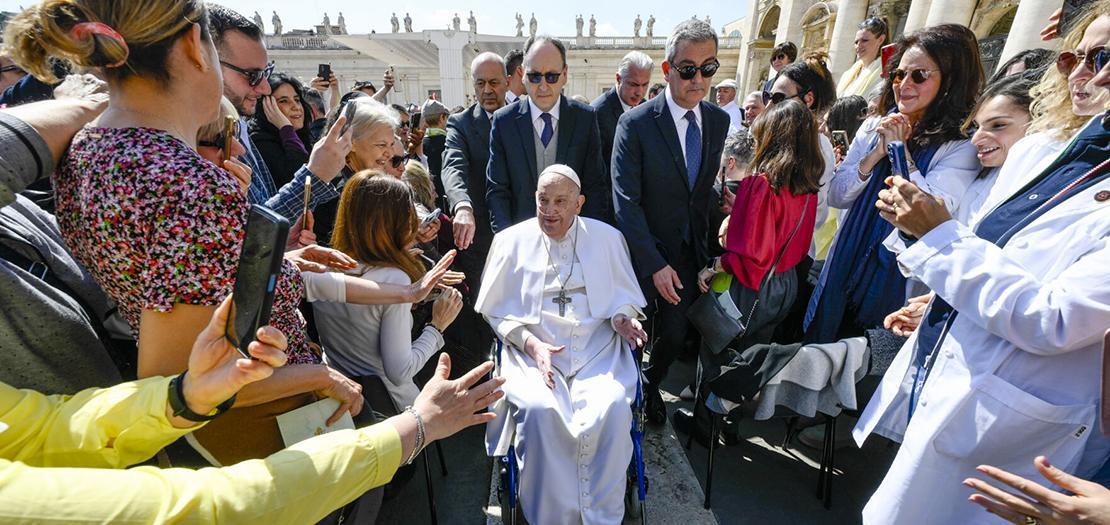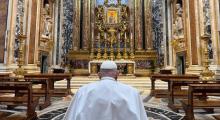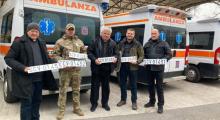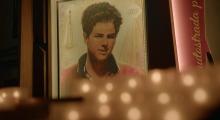Issued by the Catholic Center for Studies and Media - Jordan. Editor-in-chief Fr. Rif'at Bader - موقع أبونا abouna.org

The unexpected appearance of Pope Francis in the final moments of the liturgical celebration for the Jubilee dedicated to the sick and healthcare workers represents a message full of meaning.
Even in the time of virtual reality, in the time when we believe we can participate in everything from behind a computer screen, being physically present is very important.
To be there in person, to make the effort to travel, to go out, to wait; to make the effort to walk, to get close to others, to sweat, to expose oneself to the sun or the elements, makes it possible to meet the gaze of those around us in person, to experience the company of others, to be part of a pilgrim people.
With his unannounced appearance on Sunday, the Successor of Peter teaches us that nothing can ever really replace physical presence, being there.
The Pope's appearance in front of St Peter’s Basilica is therefore in itself a message more significant than any words: despite his still feeble voice, despite the oxygen tank, he wanted to be there.
Then there is a second meaning: for his first public appearance after being released from Gemelli Hospital, Pope Francis chose a Jubilee celebration that he feels particularly close to: one dedicated to the sick, to those who suffer, and to those who care for those who suffer.
Although the worst is over, the Pope is a convalescent who still shows the signs of illness. Frail among the frail, he has not given up living “his” Jubilee, confessing in the Basilica and going through the Holy Door as thousands do every day.
On Sunday, he came as a simple pilgrim still suffering the consequences of pneumonia, crossing the threshold of the same Holy Door he himself had thrown open wide on Christmas night.
Finally, Sunday morning’s surprise appearance speaks to us of the pastor’s relationship with his flock and of the bishop with his people.
Despite his convalescence, despite the doctors’ warnings, Pope Francis has not given up meeting with people, even though he is aware of the risks to his health this may entail.
In doing so, he shows us that even though circumstances may sometimes dictate a “virtual” approach due to hospitalization, lockdown due to the pandemic, or inability to travel, an in-person encounter is irreplaceable. For, as he said a little over a year ago, “love needs tangibility; love needs presence and encounter; it needs to be given time and space; it cannot be reduced to beautiful words or to images on a screen…”
This applies, too, to the Pope’s love for the people of God, to whom he has always “spoken” not in words only but with actions and tenderness.







